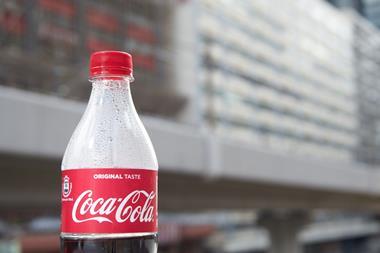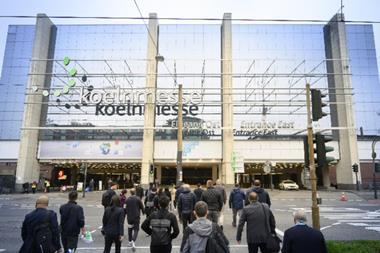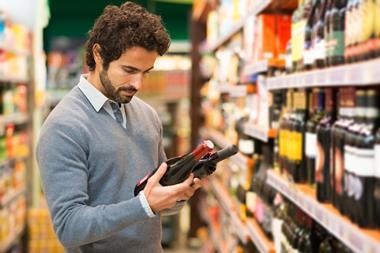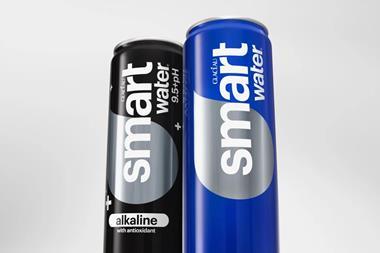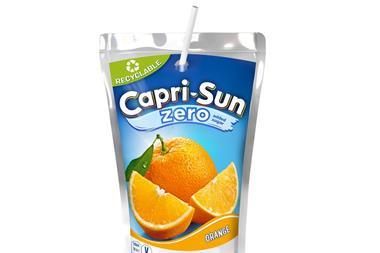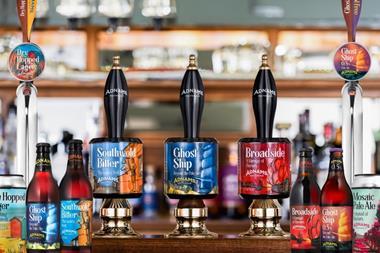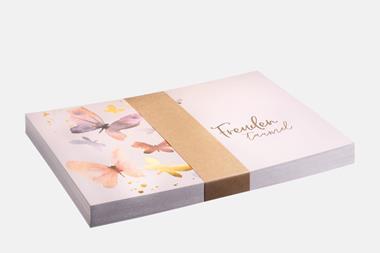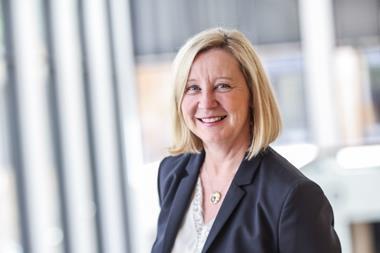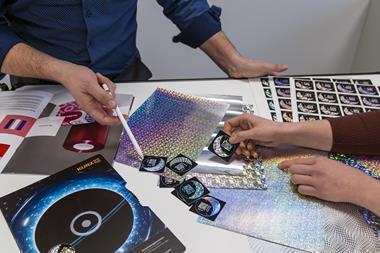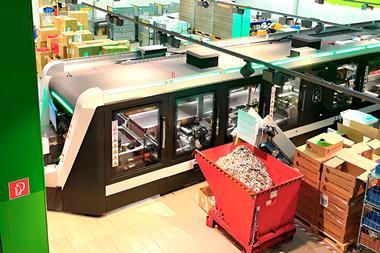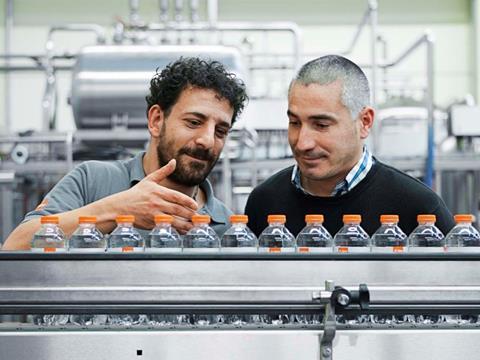
Producers of carbonated soft drinks (CSD) today require production lines that are flexible and smart, without compromising on quality, speed and efficiency.
These solutions allow for optimised production uptime, reduced resource consumption and quick stock keeping unit (SKU) changes, while keeping the Overall Equipment Efficiency (OEE) consistent. Such an approach is the key to winning the challenges of today’s CSD market, effectively recognising the roles that packaging, equipment, line design, clever automation, smart data management and on-going services all have to play.
With a growing global population and increasing urbanisation, changes in demand include a preference for smaller, on-the-go sizes to fit in with consumers’ busier, urban lifestyles. Worldwide, increasing concern for personal diet, health and fitness is also driving a move from traditional sugary soft drinks to healthier options. Consequently, many CSD producers are now investing in a wider choice of new beverages with natural, low-calorie sweeteners, sports drinks and carbonated juices, as well as beverages targeting local and traditional tastes. Meeting production needs in such a fragmented and evolving market requires smarter solutions and innovations. “Rapidly shifting conditions and the demands the industry is currently experiencing mean that manufacturers need flexibility from their PET bottling lines,” explains Damien Fournier, Category Marketing Director CSD at Sidel. “The ability to adapt production quickly and effectively while still ensuring top beverage quality and the best consumer experience when launching new products is essential if producers are to capitalise on opportunities that arise.”
With more than 40 years of experience in complete solutions for carbonated soft drinks and the world’s largest installed base of integrated blow-fill-cap systems, Sidel provides producers with full control and transparency throughout the process. “Successful CSD production requires a focus on flexibility and overall efficiency, as well as branding opportunities” adds Fournier. “This is why innovative packaging solutions, which are able to perform optimally across the supply chain and ensure high quality and the expected shelf life, are an essential consideration when choosing the right equipment supplier for a bottling line.”
Innovative solutions and optimised bottle performance, validated by in-house experts
With the aim of improving bottle strength and performance while reducing costs and ensuring the brand stands out on the shelves, Sidel scientists and in-house packaging designers work on more than 8,000 new bottle designs and drawings every year. At 5 packaging centres and 4 in-house R&D laboratories around the world, they help producers to define, qualify and industrialise the packaging solutions that fit best with consumer expectations. This often leads to customers and partners relying on Sidel’s expertise, tools and processes to develop their packaging solutions and related validation procedures. Creating and evaluating bottle samples and performing many different tests, the Sidel laboratories take care of the safety and quality of the beverages, as well as ensuring great product performance throughout the supply chain, ultimately enhancing the consumer’s experience.
The company’s expertise led to the recent development of Sidel StarLite™, the unique PET base design that increases bottle resistance and stability while lowering both package weight and energy consumption. Through this solution - which can even be applied to existing lines - overall costs are lowered without affecting beverage quality. Sidel's StarLite Tropical base - recently added to the range of the StarLite bottle designs - is designed for CSD containers subjected to harsh environmental conditions, such as those produced and distributed under high temperatures or in humid climates. Its optimised geometry reinforces all the zones that are more susceptible to stress cracking. Offering a flexible solution for CSD in sizes from 0.25 to 3 litres and with all standard levels of carbonisation, the end result is a PET bottle that offers improved resistance as well as better stability throughout the supply chain.
Moreover, carbonated soft drinks represent one of the main beverage applications for which the company developed Sidel Actis™ (Amorphous Carbon Treatment on Internal Surface) - a pioneering, plasma-coating barrier technology for PET bottles to extend beverage shelf life while offering the potential for package lightweighting. The barrier solution was designed for smaller size or single-serve PET containers (typically less than 700 ml), which are especially susceptible to gas exchanges such as those involving the ingress of oxygen (O2) and the loss of carbon dioxide (CO2).
Compact and flexible production
Sidel’s fully integrated, hygienic and innovative solutions help producers to optimise uptime and operating costs. The portfolio includes a range of modular equipment and components, able to increase line efficiency and speed while ensuring food safety, flexibility and hygiene.
However, every production line has its own individual requirements in terms of location, utilities, processes and packaging. Sidel designs PET production lines with a focus on functionality, efficiency, ergonomics and productivity, taking care to ensure they all work together seamlessly to create a solution that meets each customer’s specific needs. The company’s engineering capability is a multidisciplinary combination of specialists, experts, proven methods and processes - with design and simulation tools developed to deliver the optimum PET line productivity and performance.
The Sidel Matrix™ Combi, offers blowing, filling and capping processes in one machine, optimising the production line layout with a smaller footprint. It efficiently combines the benefits of the Sidel Matrix blower with those of the electronic volumetric SF300 FM filler. By offering faster changeovers with savings in power consumption, labour, raw materials, maintenance time and spare parts, the Combi lowers operating costs by up to 12%. More importantly, the solution provides high performance with efficiency levels up to 4% better than standalone machines.
More accurate, consistent and sustainable mixing
For controlled mixing, over 2,000 Sidel blenders have been installed and certified worldwide, delivering great taste profiles and long-lasting and homogeneous carbonation in soft drinks. The Sidel Matrix SM500 mixer allows for improved beverage quality, delivering premium drinks which fully respect the original recipe. For increased flexibility, it is based on a modular platform enabling several configurations, such as a single or double water deaeration, and optional upgrades.
Additionally, the mixer can be combined with the Sidel Matrix SF300 FM filler via the Blendfill configuration, for excellent carbonated soft drinks quality. Using the mixer beverage tank as a shared tank with the filler, this solution consumes less CO2. Also, it allows for reductions in costs, beverage waste and footprint, as well as quicker recipe changes without compromising on consistent quality of the beverages.
Designed for optimal hygiene and low consumption
Sidel PET complete lines for CSD are engineered with food safety and sustainability in mind. Clean-in-place (CIP) dummy bottles help to automate the cleaning process, while the external beverage tank is easy to clean, offering savings in both time and associated costs. External cleaning (with self-draining surfaces) is designed and built to ensure effectiveness and requires a low consumption of both water and chemical agents, further reducing costs and improving safety and sustainability of production. Hygiene is also optimised by the reduced filling enclosure, some 80% smaller than traditional solutions and whose volume is under controlled conditions.
Giving the final package a memorable look
Labelling is an essential factor to ensuring a product stands out on supermarket shelves. Roll-fed technology uses thin plastic labels, which have physical and functional qualities making them very attractive to consumers and beneficial for beverage producers. The Sidel Matrix SL70 efficient roll-fed labelling station delivers precise and controlled handling and application for containers of any shape. With 30% faster changeover times for containers, this ergonomic system maximises uptime and productivity. It uses up to 40% less power and also reduces maintenance time by 40%.
Flexible pack configurations, quick changeovers and optimised transportation
The secondary packaging - the finished pack that the consumer sees at the point of sale - represents a strong opportunity to reinforce brand recognition and so needs to be appealing, durable and functional to catch attention. Carrying the labelled bottles onto the secondary packaging process, Sidel’s smart conveyors can be automatically adjusted to handle different formats. Gently feeding the bottles to maintain consistency and quality, the packers also optimise the use of heat, glue, cartons and film. This minimises overall costs, as well as ensuring that protection of the product throughout the supply chain from changes in weather, pressure and temperature is not compromised. All Sidel’s packers ensure quick changeovers for flexible handling of multiple SKUs.
Sidel palletisers, both traditional and robotic, allow fast and easy SKU changeovers in layer formation to organise the right number of single bottles onto - for example - trays or dollies, or packs onto pallets. To supplement and further enhance its palletising solutions, Sidel offers Place & Pal Designer™ - user-friendly software to automate configuration of the palletisation platform, with two different integration options available to maximise flexibility. It can be directly integrated into the palletisation island’s Human Machine Interface (HMI) or, alternatively, through automatic connection on the supervisor server in remote mode. Adopting the software as part of the palletisation process offers a number of benefits, optimising the choice of existing patterns and making it easier and quicker to develop new and potentially more efficient ones. It enables the creation and management of a dedicated database with the capability to make direct entries of new formats. The programming of new patterns is accelerated through the capacity to refer to previously stored patterns while the software also automatically checks the suitability and stability of pallets for chosen patterns. In this way smart pallet patterns of various sizes and formats of bottles can be achieved, in order to optimise efficiency during transportation and storage.
Maximum uptime and minimum operational costs Once a line is up and running, Sidel Services™ offers a tailored portfolio to help build maintain, regain and even improve performance throughout the equipment’s lifetime. From customised maintenance, through to line improvement, to spare parts and logistics services, the company combines customer proximity with global experience to shorten lead times and improve customers’ efficiency.
However, it is difficult to improve what is not being measured. The market is looking for systems with “built-in intelligence” capable of proactively translating raw data into actionable information. Sidel's Efficiency Improvement Tool (EIT™) handles production issues to meet ongoing challenges and also anticipates them through trends and forecasts.
“By taking a global view of the Overall Equipment Effectiveness and the entire working life of a production line, as new technologies and solutions are developed, Sidel offers existing customers options and upgrades, line conversion and training services. This ensure that installed equipment does not get left behind, while strengthening operators’ skills in order to boost performance. In this way the company is always working to help producers optimise operating costs and reach the lowest possible TCO, as well as ensuring sustained performance over time" adds Damien Fournier.
More info:

